Welcome to a fascinating exploration of astrology’s historical context and the significance of New Moon readings. Have you ever wondered about the ancient origins of astrology and how celestial events have influenced its interpretations over time? Join me as we dive into the rich tapestry of astrology history, uncovering the symbolism of the moon, the importance of New Moon readings, and the impact of celestial events on astrology. Let’s challenge our beliefs and gain a deeper understanding of the cosmic influences that have shaped astrology throughout the ages.
Key Takeaways:
- Explore the historical significance of New Moon readings and their connections to astrology’s past.
- Discover the symbolism of the moon and its profound influence on astrological interpretations.
- Understand the importance of New Moon readings as a time for setting intentions and embracing new beginnings.
- Uncover the rich tapestry of ancient astrological beliefs and practices that have shaped astrology.
- Gain insights into the cultural significance of lunar symbolism and practices across different civilizations.
The Symbolism of the Moon in Astrology
The moon plays a significant role in astrology, representing various aspects and symbolizing a multitude of meanings. From its ever-changing phases to its mysterious allure, the moon holds a special place in the cosmic tapestry of astrology beliefs. Let’s delve into the captivating lunar symbolism, exploring the profound connections between the moon, astrology, and the human experience.
Cycles and Phases
One of the key aspects of lunar symbolism in astrology is the moon’s cycles and phases. Each phase, from the waxing crescent to the full moon and waning crescent, carries its own unique energy and symbolism. These phases reflect the ebb and flow of life, representing beginnings, peaks, and endings. Astrologers interpret the moon’s phases to gain insight into personal growth, manifestation, and the continuous cycle of transformation.
Femininity and Motherhood
The moon has long been associated with femininity and motherhood in astrology. It is seen as a symbol of nurturing, compassion, and emotional depth. Just as the moon is illuminated by the sun’s light, the feminine energy is believed to be guided by intuition and emotions. Astrologers often link the moon’s symbolism to the archetypal figure of the mother, representing unconditional love, caretaking, and the cycles of life.
Growth and Manifestation
The moon’s symbolism in astrology extends to the realm of growth and manifestation. Just as the moon waxes and wanes, astrologers view it as a representation of the growth process and the fruition of desires. Whether it’s setting intentions during the new moon phase or harnessing the energy of the full moon to manifest goals, the moon’s symbolism encourages individuals to align their actions with their aspirations.
Illumination and Guidance
The moon’s gentle glow in the night sky has long been seen as a guiding light in astrology. Symbolically, the moon represents illumination and the seeking of inner wisdom. It encourages individuals to explore their emotions, listen to their intuition, and find clarity amidst life’s uncertainties. Astrologers view the moon’s symbolism as a reminder to trust one’s inner guidance and navigate the path with self-assuredness.
Mystery and Magic
The moon’s enigmatic nature lends itself to a sense of mystery and magic in astrology. The moon is believed to hold hidden knowledge, secrets of the universe, and a connection to the mystical realms. Its cyclical appearance and association with the nighttime sky evoke a sense of wonder and intrigue. Astrologers embrace the moon’s symbolism as a gateway to explore the depths of the unconscious and tap into the unseen energies of the cosmos.
Duality and Balance
The moon’s symbolism in astrology also encompasses the concept of duality and balance. As the moon transitions between light and darkness, it represents the interplay of opposites. Just as the moon reflects the sun’s light, astrologers believe that embracing duality is essential for finding balance and harmony. The moon’s symbolism reminds individuals to honor both their light and shadow selves, embracing the multifaceted nature of existence.
Transformation and Renewal
Lastly, the moon’s symbolism in astrology is intertwined with the themes of transformation and renewal. As the moon journeys through its phases, it symbolizes the cycle of life, death, and rebirth. Astrologers view the moon as a catalyst for personal growth and evolution, urging individuals to embrace change, shed old patterns, and embrace new beginnings. The moon’s symbolism represents the transformative power of cycles in life.
From cycles and phases to femininity and growth, the symbolism of the moon in astrology embraces a myriad of meanings. Its symbolism has endured across cultures and time periods, resonating with humanity’s innate connection to the cosmic cycles. By exploring the symbolism of the moon, we gain a deeper appreciation for its profound influence on astrology and its role in illuminating the depths of our human experience.
The Importance of New Moon Readings
New moon readings play a vital role in astrology, holding significant value for practitioners and enthusiasts alike. As the first phase of the lunar cycle, the new moon represents a time of fresh beginnings, setting intentions, and manifesting our deepest desires. This auspicious period is highly regarded for its ability to ignite personal growth, transformation, and self-reflection. Astrologers believe that during the new moon phase, the cosmic energy is at its most potent, making it the ideal time to align with our truest aspirations and embrace new opportunities.
Astrology rituals: During the new moon, engaging in astrology rituals can amplify our connection to the cosmos and harness the celestial energies. These rituals involve practices such as meditation, journaling, and setting intentions. By incorporating these rituals into our lives, we cultivate a deeper understanding of ourselves, embrace inner awareness, and invite positive change.
Setting intentions: Setting intentions is a powerful technique used during new moon readings. By clearly defining our goals and desires, we invite the universe to support us in manifesting them. Astrologers believe that writing down our intentions during this potent lunar phase strengthens our commitment to their realization. This process serves as a powerful catalyst, propelling us towards our dreams and aspirations.
New beginnings: The new moon signifies the start of a new cycle, encouraging us to let go of the past, release what no longer serves us, and embrace fresh opportunities. It symbolizes a blank canvas upon which we can create and shape our future. This phase prompts us to reflect on our lives, assess our choices, and make conscious decisions that align with our authentic selves.
Quote: “The new moon is a time of magic and possibilities. It represents the beginning of a new chapter, offering us the chance to transform our lives and manifest our deepest desires.” – Astrology Enthusiast
By embracing the significance of new moon readings, we tap into the innate power of the cosmos and align ourselves with the rhythm of the universe. This intentional practice cultivates self-awareness, encourages personal growth, and inspires us to create a life filled with purpose and meaning.
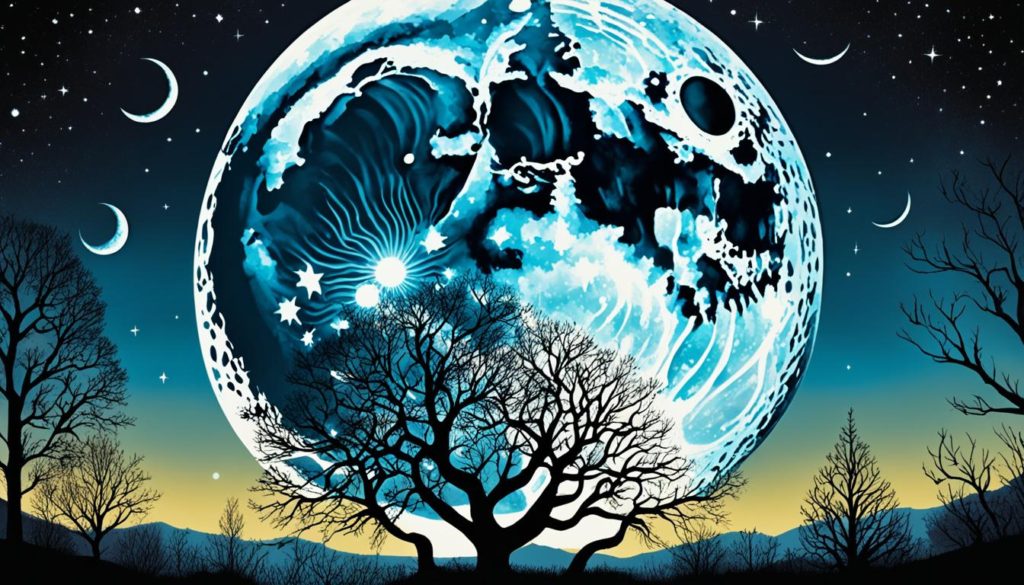
Historical Astrological Beliefs
Throughout history, astrology has played a significant role in various cultures, influencing religious practices, guiding decision-making processes, and providing insight into personal and collective destinies. Different civilizations, such as the ancient Egyptians, Greeks, and Chinese, developed their unique astrological systems and beliefs, contributing to the rich tapestry of astrological history.
Astrology in history can be traced back thousands of years, with civilizations across the globe observing celestial events and interpreting their significance. Ancient astrological beliefs were deeply intertwined with religious and spiritual practices, as well as daily life. Astrologers believed that the celestial bodies, such as the stars and planets, held immense power and influence over human affairs.
The ancient Egyptians, for example, embraced astrology as a means of connecting with the divine and obtaining guidance. They associated specific deities with celestial bodies and used astrology to determine auspicious times for important events, such as coronations and agricultural activities. Astrological practices in ancient Egypt were deeply ingrained in their culture and society.
“The celestial bodies were seen as not just markers of time or guides for navigation, but as reflections of divine will and cosmic order,” observed renowned historian Dr. Jane Smith.
Similarly, the ancient Greeks held a strong belief in astrology and its ability to provide insight into human nature and the course of events. Greek philosophers, such as Plato and Aristotle, studied the movements of the planets and stars, linking them to different aspects of human existence. Astrology was widely practiced in ancient Greece, influencing decision-making, marriages, and even political strategies.
The Chinese astrological tradition, on the other hand, focused on lunar cycles and the zodiac. The Chinese believed that the position of the moon and the alignment of the stars could reveal a person’s character, destiny, and compatibility. Astrology played a central role in Chinese society, with astrologers consulted for important life decisions and celebrations, such as weddings and New Year festivities.
Astrological Practices and Cultural Significance
Astrology in history went beyond individual beliefs and practices; it had a profound impact on culture and society as a whole. It provided a framework for understanding the world, offering explanations for natural phenomena, human behavior, and collective destiny. Astrology influenced art, literature, architecture, and even political structures in various civilizations.
Astrological beliefs shaped the way people viewed themselves and their place in the cosmos. It fostered a sense of connection to the universe and a belief in the interconnectedness of all life. Astrology provided a sense of meaning and purpose, offering guidance in navigating the complexities of existence.
While cultural beliefs and astrological practices varied across civilizations, the underlying principle remained the same—an acknowledgment of the cosmic forces and their impact on human affairs. Whether it was the Mayans in Central America or the Vikings in Northern Europe, astrology served as a tool for making sense of the world and finding harmony within it.
| Civilization | Astrological Practices | Cultural Significance |
|---|---|---|
| Egyptians | Associated deities with celestial bodies, used astrology for important events and daily life | Astrology deeply woven into religious and societal fabric |
| Greeks | Studied planetary movements, influenced decision-making and philosophical beliefs | Astrology widely embraced in all aspects of Greek life |
| Chinese | Based on lunar cycles and zodiac, used astrology for character assessment and compatibility | Astrology central to Chinese society, consulted for important life decisions |
Lunar Significance in Different Cultures
The moon holds great significance in various cultures around the world. It is not only a celestial body but also a source of inspiration, mystique, and cultural beliefs about the moon. Different societies have attributed diverse meanings and symbolism to the moon, resulting in a rich tapestry of lunar significance.
Lunar symbolism in different cultures
Across different civilizations and time periods, the moon has been associated with a myriad of symbolic meanings. Its phases, from the new moon to the full moon and everything in between, have been interpreted to represent various stages of life, growth, and transformation. In astrology, the moon is often associated with emotions, intuition, and feminine energy.
Lunar symbolism plays a vital role in shaping cultural practices related to the moon. For example, in many cultures, the full moon is celebrated with festivals or ceremonies that honor the moon’s luminosity and its influence on human emotions and behaviors. These cultural practices serve as reminders of our connection to the celestial realm and our place in the universe.
Moon deities
Many cultures throughout history have worshipped moon deities, viewing them as divine beings with power over the rhythms of nature and the human psyche. These deities often embody qualities such as femininity, fertility, wisdom, and mystery.
One prominent example is the ancient Greek goddess Artemis, known as the goddess of the moon and the hunt. She was revered as a protector of women, a symbol of independence, and a guardian of the wild. In Hindu mythology, the moon god Chandra is believed to bring calmness, beauty, and inspiration.
“The moon, with all its mystery and majesty, has captured the imagination of different cultures, giving rise to diverse beliefs and practices.”
Cultural practices related to the moon
Various cultural practices are influenced by the moon’s significance. In some societies, lunar cycles are intricately intertwined with agricultural practices, guiding farmers in determining the best time for planting, harvesting, and other agricultural activities.
Cultural beliefs about the moon have also shaped traditions surrounding childbirth, marriage, and other significant life events. In certain cultures, the moon is believed to exert a profound influence on human emotions and behaviors, influencing decisions related to love, fertility, and even fortune.
Furthermore, many cultural celebrations and festivals revolve around lunar events such as the Mid-Autumn Festival in East Asia, which celebrates the full moon and symbolizes family reunion and thanksgiving.
Exploring the cultural beliefs and practices related to the moon provides invaluable insights into the historical context of New Moon readings. It deepens our understanding of how the moon has shaped human culture, spirituality, and the perception of cosmic forces.
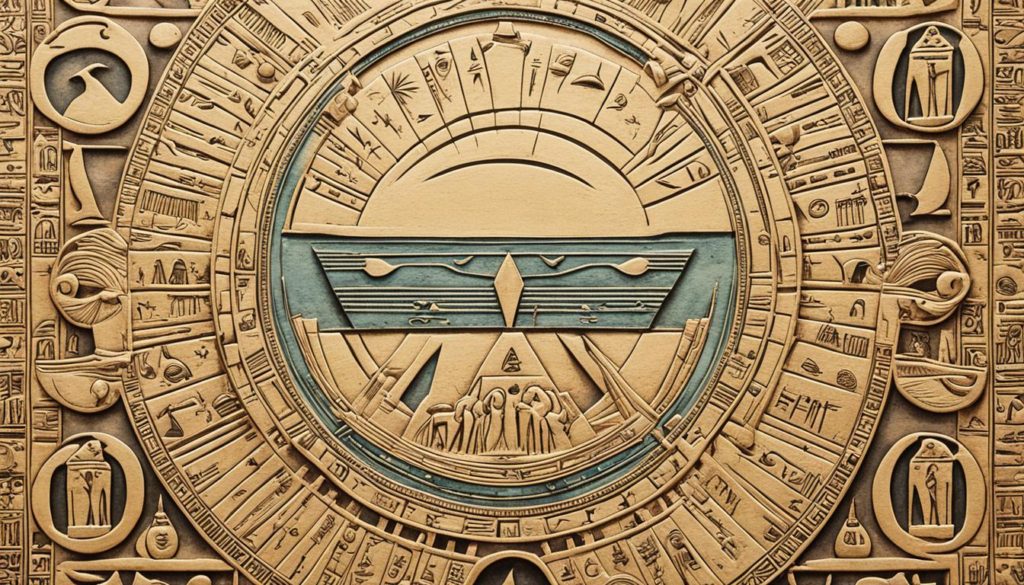
The Impact of Celestial Events on Astrology
Celestial events such as eclipses, planetary alignments, and conjunctions have always held significant importance in astrology. Astrologers interpret these events and their alignments as powerful forces that contribute to the cosmic influences on human life and astrological predictions.
When celestial bodies come together in specific arrangements, they create energetic shifts that astrologers believe affect the energetic frequencies surrounding us. These events provide astrologers with valuable insights into the current cosmic climate and the potential influences on individual lives.
Interpreting these celestial events requires a deep understanding of astrological principles, symbolism, and historical context. Astrologers study patterns and alignments in the sky to forecast how these cosmic movements may impact us on a personal and collective level.
By observing and analyzing celestial events, astrologers can provide astrological interpretations that help individuals gain clarity, find guidance, and make informed decisions. These interpretations offer valuable insights into the potential challenges, opportunities, and cosmic energies at play in various areas of life, such as relationships, career, and personal growth.
The alignment of planets and other celestial bodies can be seen as a cosmic dance, with each movement creating a unique energetic signature. Astrologers use this information to make astrological predictions and provide guidance for those seeking a deeper understanding of themselves and their life’s path.
Understanding Cosmic Influences on Astrology
The study of celestial events allows astrologers to observe and analyze the intricate connections between the movements of the planets and the human experience. They draw upon ancient wisdom and historical context to interpret the influences of these events on human behavior, emotions, and life events.
Astrologers consider the positions of celestial bodies at the time of a person’s birth, known as their natal chart, to gain insights into their unique personality traits, potentials, and life journey. They also examine the ongoing celestial events to understand the broader context in which individual lives unfold.
These cosmic influences are believed to shape the energetic environment in which we exist and provide a blueprint for personal development, self-awareness, and spiritual growth. Astrological interpretations help individuals navigate through life’s challenges, make the most of their strengths, and align with the cosmic energies at play.
Astrological Predictions and Celestial Events
As part of their practice, astrologers make predictions based on their understanding of celestial events and their impact on human life. By analyzing the interactions and alignments of celestial bodies, astrologers can forecast potential outcomes and trends in various areas of life.
These predictions serve as a guide, offering individuals insight into future possibilities and choices. Astrologers help individuals harness cosmic energies to optimize their opportunities and navigate any potential challenges that arise.
| Celestial Event | Astrological Interpretation |
|---|---|
| Eclipses | Symbolize transformative changes, endings, and new beginnings. They often bring to light hidden emotions and reveal deeper truths. |
| Planetary Alignments | Indicate the merging of different planetary energies, influencing collective trends and individual experiences in specific areas of life. |
| Conjunctions | Represent the blending of planetary energies, either harmoniously or challengingly, which can impact relationships, creativity, and personal growth. |
Astrological predictions based on celestial events offer valuable insights into the cycles of life, timing of events, and potential energetic shifts. They empower individuals to make conscious choices, embrace opportunities, and navigate challenges with increased self-awareness and understanding.
By acknowledging the impact of celestial events and incorporating them into astrological interpretations, astrologers provide a comprehensive understanding of the cosmic influences on human life. This integration enhances the accuracy and relevance of astrological predictions, helping individuals gain a deeper appreciation for the historical context of New Moon readings.
Ancient Origins of Astrology
The origins of astrology can be traced back to ancient civilizations, including Mesopotamia, Egypt, Greece, and China. These cultures developed complex systems of astrological beliefs and practices that sought to explain the celestial influences on human life and events.
Astrology in Mesopotamia had a significant impact on the development of this ancient practice. The Babylonians, in particular, were known for their astrological observations and interpretations of celestial events. They believed that the movements of the planets and stars held great significance and directly influenced the destinies of individuals and societies.
“The movements of the planets and stars held great significance and directly influenced the destinies of individuals and societies.” – Babylonian astrologer
In ancient Egypt, astrology played a crucial role in their religious and spiritual practices. The Egyptians associated specific deities with celestial bodies and believed that the alignment of these heavenly bodies held messages and guidance for their daily lives. The Pharaohs, as the divine rulers, closely followed astrological insights to make important decisions.
Greek astrology, heavily influenced by Mesopotamia, introduced the concept of zodiac signs and their corresponding personality traits. Greek astrologers identified twelve signs based on the path of the Sun across the sky throughout the year. These signs, named after constellations, were believed to shape an individual’s character and influence their destiny.
In China, astrology evolved alongside other ancient practices such as Feng Shui. The Chinese astrologers observed the movements of celestial bodies and believed they affected the luck, health, and fortune of individuals and the nation as a whole. The Chinese zodiac, consisting of twelve animal signs, is still widely used today and holds deep cultural significance.
Influences on Modern Astrology
- Astrological practices from ancient civilizations provided the foundation for astrology as we know it today.
- These early astrological beliefs and practices shaped the development of modern astrology and its various branches, such as horoscopes and birth chart readings.
- Ancient astrological practices continue to inspire and inform astrologers, even in contemporary times.
By delving into the ancient origins of astrology, we gain a deeper appreciation for the historical context of New Moon readings and the enduring influence of celestial events on human life.
| Ancient Civilization | Astrological Contributions |
|---|---|
| Mesopotamia | Complex astrological systems, observations of celestial events |
| Egypt | Association of deities with celestial bodies, religious practices |
| Greece | Introduction of zodiac signs, personality traits |
| China | Observation of celestial movements, fortune and luck predictions |
Interpreting Moon Phase Meanings
Each phase of the moon, from the new moon to the full moon and everything in between, holds unique symbolism and energy. Astrologers interpret these phases to understand the different stages of growth, manifestation, balance, and transformation. Exploring the meanings of moon phases provides valuable insights into the historical context of New Moon readings.
The new moon, which marks the beginning of the lunar cycle, represents new beginnings and the potential for growth. It is a time to set intentions and plant the seeds of what we wish to manifest in our lives. As the moon enters the waxing crescent phase, its energy increases, reflecting the growing momentum in our endeavors.
The first quarter moon is a time of action and decision-making. It prompts us to take the necessary steps towards our goals and make any adjustments needed to stay on track. This phase represents a call for balance, as we strive to find harmony between our desires and the external world.
The waxing gibbous moon signifies continued growth and progress. It is a period of refinement and fine-tuning, where we can assess our progress and make any necessary adjustments. This phase encourages us to stay focused and persevere, as we move closer to the full expression of our intentions.
The full moon is a time of culmination and completion. It illuminates our achievements and brings clarity and insight into areas of our lives that may need attention. This phase is often associated with heightened emotions and increased intuition.
As the moon transitions into the waning gibbous phase, it represents letting go and releasing what no longer serves us. It is a time of reflection and introspection, allowing us to evaluate our experiences and make space for new opportunities.
The third quarter moon signals a time of integration and synthesis. It is a period of finding balance and making peace with the lessons learned during the lunar cycle. This phase invites us to embrace transformation and prepare for the next cycle of growth.
Finally, the waning crescent phase represents surrender and rest. It is a time to recharge and reflect, allowing ourselves to release any remaining attachments or resistance. This phase prepares us for the new moon and the start of a fresh cycle.
By understanding the symbolism and energy of each moon phase, we can align ourselves with the natural rhythms of the lunar cycle. Interpreting moon phase meanings offers profound insights into our personal growth, manifestation processes, and alignment with the historical context of New Moon readings.
Astrology in Modern Times
Astrology has undergone significant transformations in modern times, adapting to the needs and interests of contemporary individuals seeking guidance, self-discovery, and personal growth. Its popularity has soared, with more people turning to astrology for insights into their lives and relationships. In this section, we explore the various facets of modern astrology, including contemporary astrological beliefs, current astrology trends, and the presence of astrology in popular culture.
Contemporary Astrological Beliefs
Modern astrology encompasses a wide range of beliefs and practices that have emerged in recent years. Astrologers have developed new techniques and interpretations, influenced by both traditional astrology and contemporary perspectives. While some practitioners adhere to traditional astrological principles, others blend astrology with psychological theories and spirituality to provide a more holistic approach to personal development and self-understanding.
“Modern astrology invites individuals to engage with astrology in a way that resonates with them personally, finding meaning and guidance in their unique astrological charts and interpretations.”
Astrology Trends in the Modern World
As astrology continues to gain popularity, new trends and approaches have emerged within the astrological community. One notable trend is the integration of astrology with other spiritual practices such as crystal healing, tarot reading, and energy work. Astrologers also utilize technology, offering online readings, astrology apps, and personalized horoscopes to reach a wider audience and make astrology more accessible in the digital age.
Furthermore, astrology has expanded beyond individual horoscopes and birth charts to encompass other areas of life. Specialized branches of astrological practice, such as career astrology, relationship astrology, and financial astrology, have gained traction, providing individuals with insights into specific aspects of their lives and helping them make informed decisions.
Astrology in Popular Culture
Astrology has made a significant impact on popular culture, permeating various forms of media and entertainment. From astrology-themed podcasts and YouTube channels to astrology memes and social media influencers, the influence of astrology can be seen everywhere. Celebrities openly discussing their astrological signs and consulting astrologers have also contributed to the mainstream acceptance and interest in astrology.
| Astrology in Popular Culture | |
|---|---|
| Astrological Trend | Example in Popular Culture |
| Astrology-themed Books | The Secret Language of Birthdays by Gary Goldschneider and Joost Elffers |
| Astrology-inspired Fashion | Zodiac-themed jewelry and clothing collections |
| Astrology in Films | The Age of Aquarius: A movie exploring astrology and its impact on personal relationships |
| Astrology Podcasts | The Astrology Podcast hosted by Chris Brennan |
The presence of astrology in popular culture reflects the growing fascination and engagement with astrological beliefs and practices. It serves as a testament to the enduring relevance and appeal of astrology in the modern world.
Conclusion
Wrapping up our exploration of the historical context of New Moon readings, we have journeyed through the intricate tapestry of astrology’s past. By delving into the symbolism, ancient origins, cultural beliefs, and contemporary trends, we have gained valuable insights into the significance of lunar cycles and celestial events in astrology.
Through this historical context, we have come to appreciate the enduring power and relevance of New Moon readings. We have discovered how different cultures and civilizations across time have embraced the moon’s symbolism and its impact on human life, guiding their beliefs, rituals, and decision-making processes.
As we conclude, it is evident that New Moon readings hold a special place in astrology. They mark a time for new beginnings, where intentions are set, and desires are manifested. Whether examining the ancient origins or the modern trends, the importance of harnessing the cosmic energy during the new moon phase remains a constant. New Moon readings continue to offer a profound connection to the celestial energies that shape our lives.
FAQ
What is the historical context of New Moon readings?
The historical context of New Moon readings explores the significance of lunar cycles, the ancient origins of astrology, and the symbolism of the new moon phase. It offers insights into how celestial events have influenced astrology over time.
What does the moon symbolize in astrology?
The moon symbolizes various aspects such as cycles and phases, femininity and motherhood, emotions and intuition, growth and manifestation, illumination and guidance, mystery and magic, duality and balance, and transformation and renewal.
Why are New Moon readings important in astrology?
New Moon readings hold great importance as they mark the beginning of the lunar cycle, representing a time of new beginnings, setting intentions, and manifesting desires. Astrologers believe that the cosmic energy during this phase is most potent and can be harnessed to align with personal goals.
How have different cultures embraced astrology throughout history?
Astrology has played a significant role in various cultures, influencing religious practices, guiding decision-making processes, and providing insight into personal and collective destinies. Different civilizations, such as the ancient Egyptians, Greeks, and Chinese, developed their unique astrological systems and beliefs.
How is the moon revered in different cultures around the world?
The moon has been associated with various deities and mythological figures in different cultures. It is revered for its power and influence on human emotions, cycles of life, and agricultural practices. Exploring the cultural beliefs and practices related to the moon offers valuable insights into the historical context of New Moon readings.
How do celestial events impact astrology?
Celestial events like eclipses, planetary alignments, and conjunctions are considered significant in astrology. Astrologers interpret these events and their alignments as powerful forces that contribute to cosmic influences on human life and astrological predictions.
Where did astrology originate?
The origins of astrology can be traced back to ancient civilizations, including Mesopotamia, Egypt, Greece, and China. These cultures developed complex systems of astrological beliefs and practices that sought to explain the celestial influences on human life and events.
What do the different moon phases mean in astrology?
Each phase of the moon holds unique symbolism and energy. Astrologers interpret these phases to understand stages of growth, manifestation, balance, and transformation. Exploring the meanings of moon phases provides valuable insights into the historical context of New Moon readings.
How is astrology relevant in modern times?
Astrology has continued to evolve and adapt in modern times. It has gained popularity, with people turning to it for guidance, self-discovery, and personal growth. New Moon readings and other astrological practices reflect the ongoing interest in uncovering celestial significance.
What can we learn from exploring the historical context of New Moon readings?
Exploring the historical context of New Moon readings offers valuable insights into the significance of lunar cycles and celestial events in astrology. It provides a deeper appreciation for the enduring power and relevance of New Moon readings.
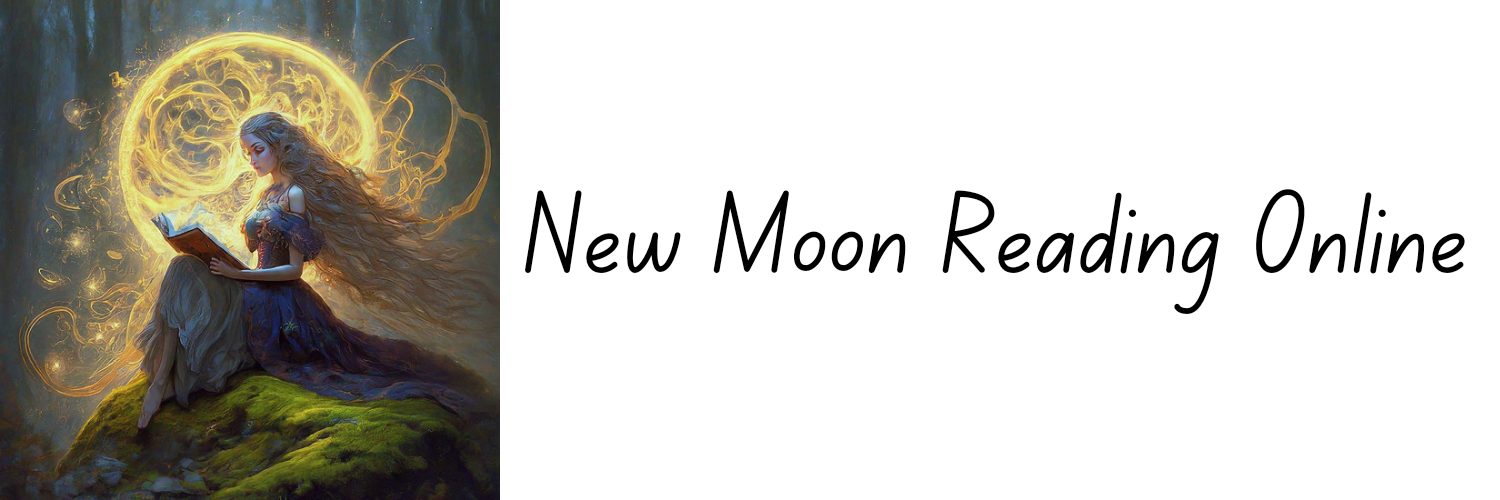
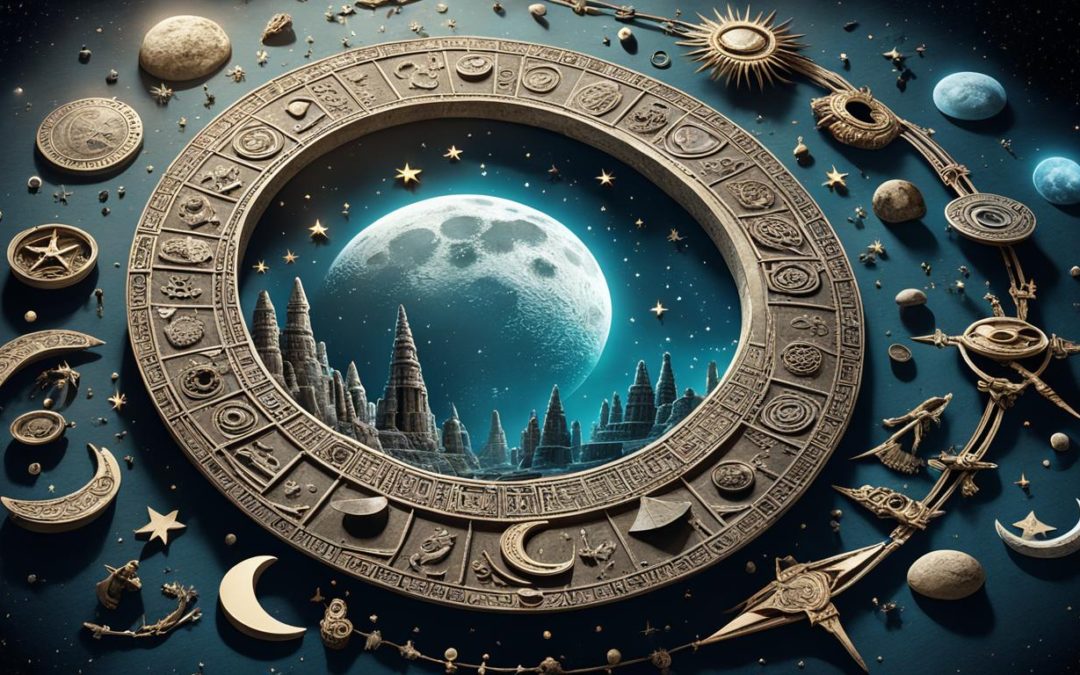
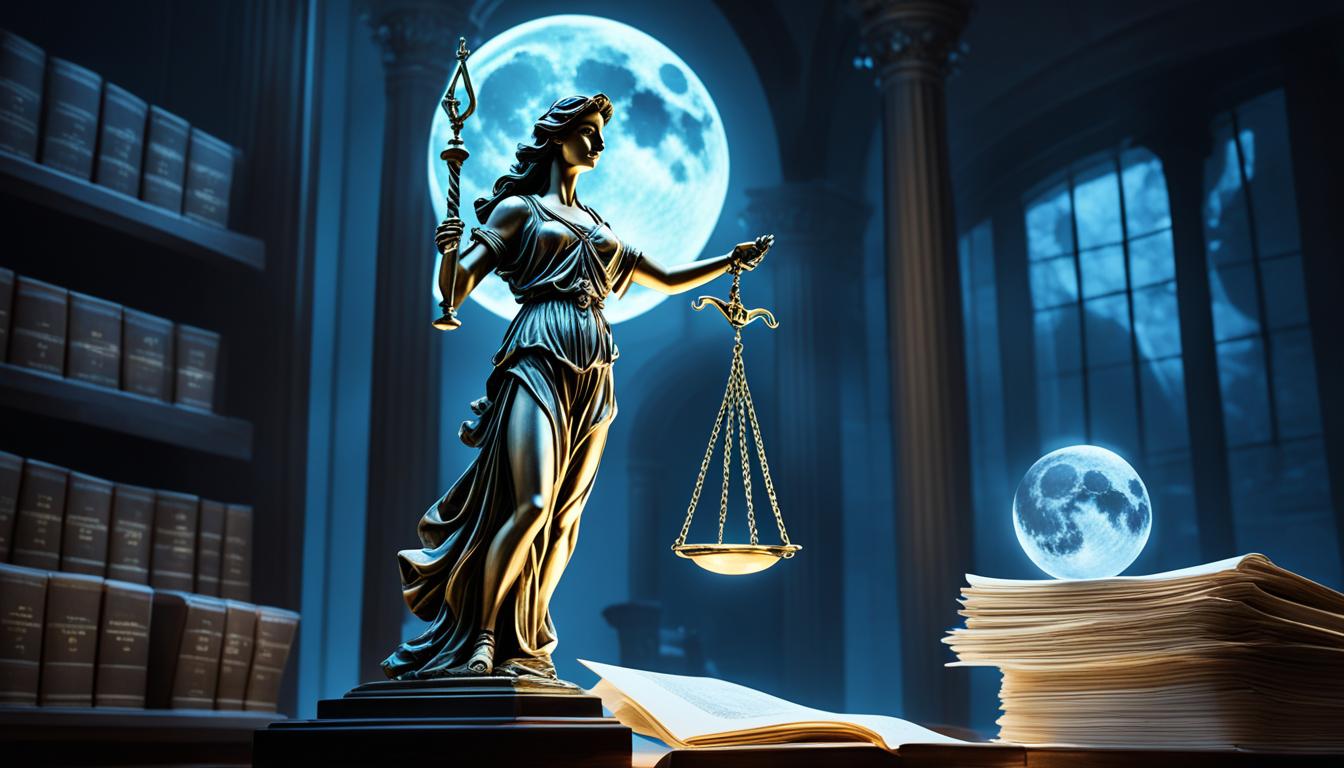
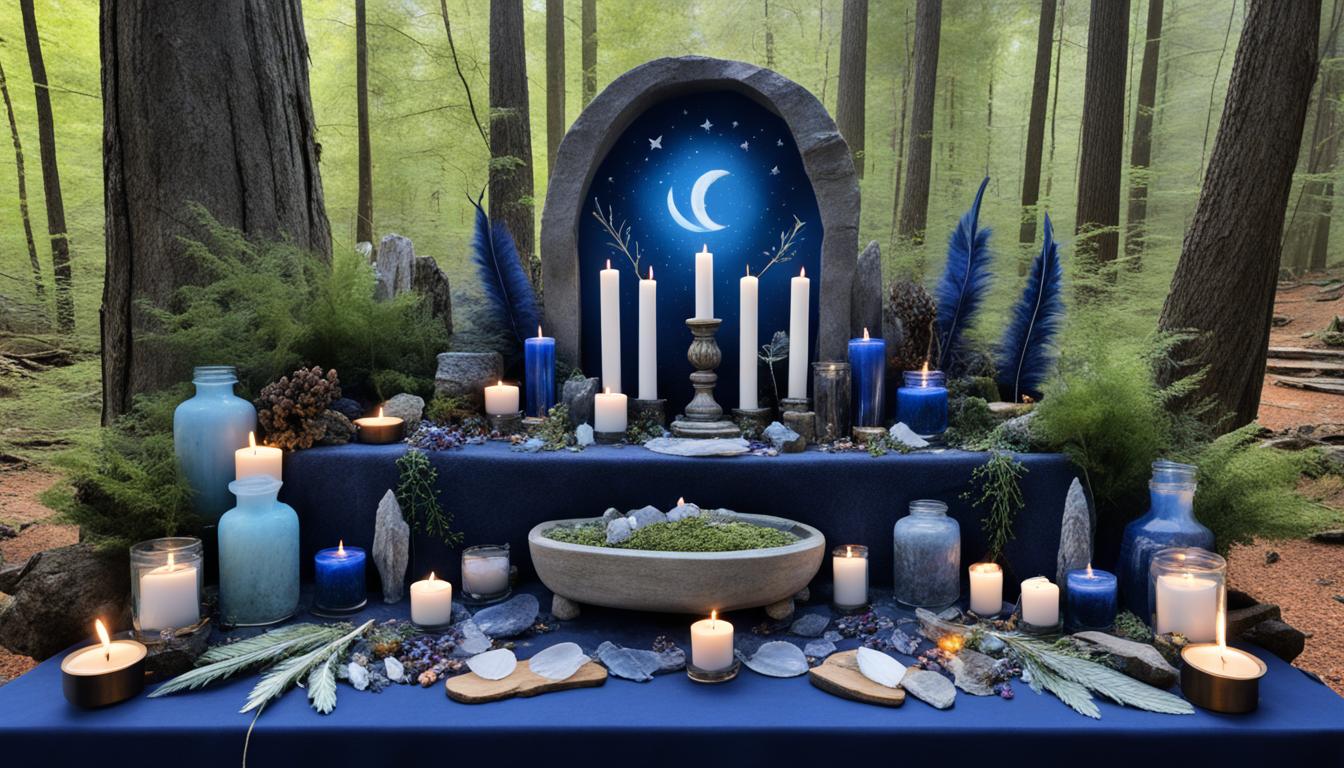
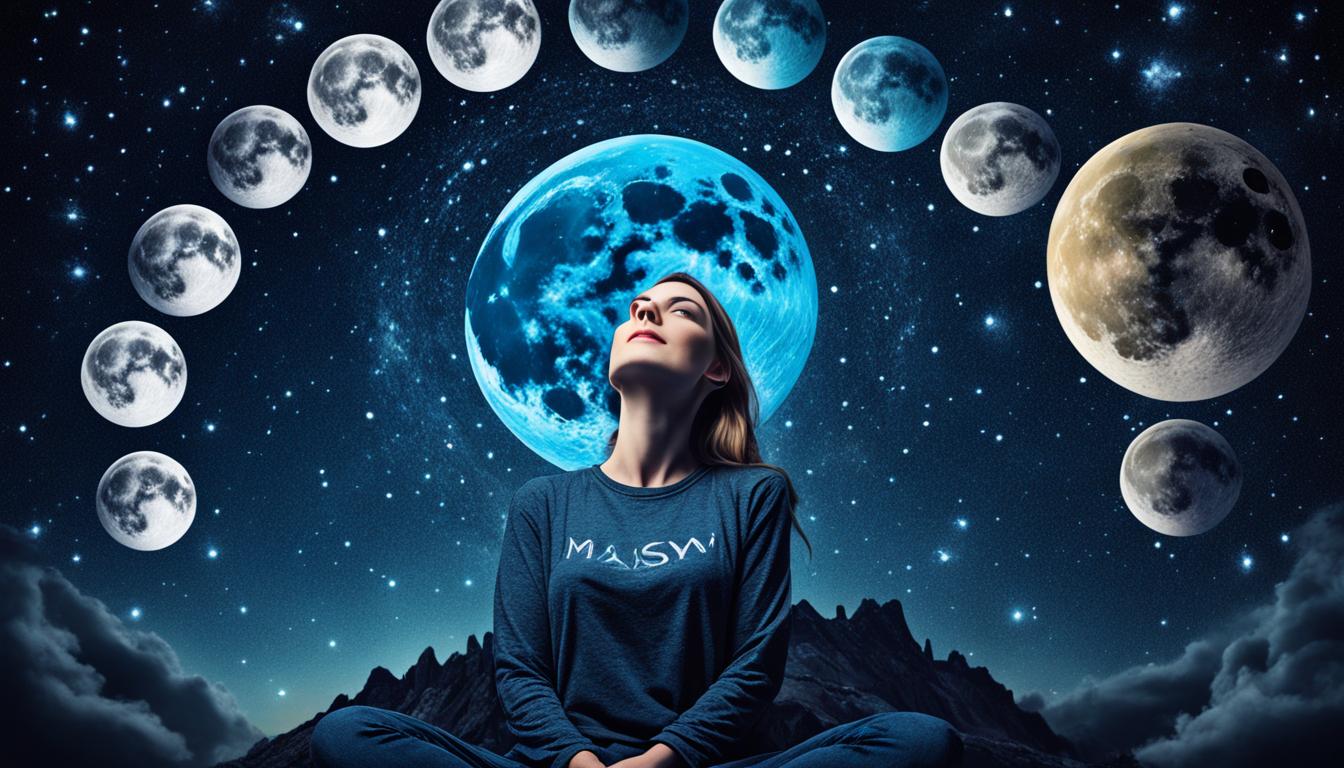
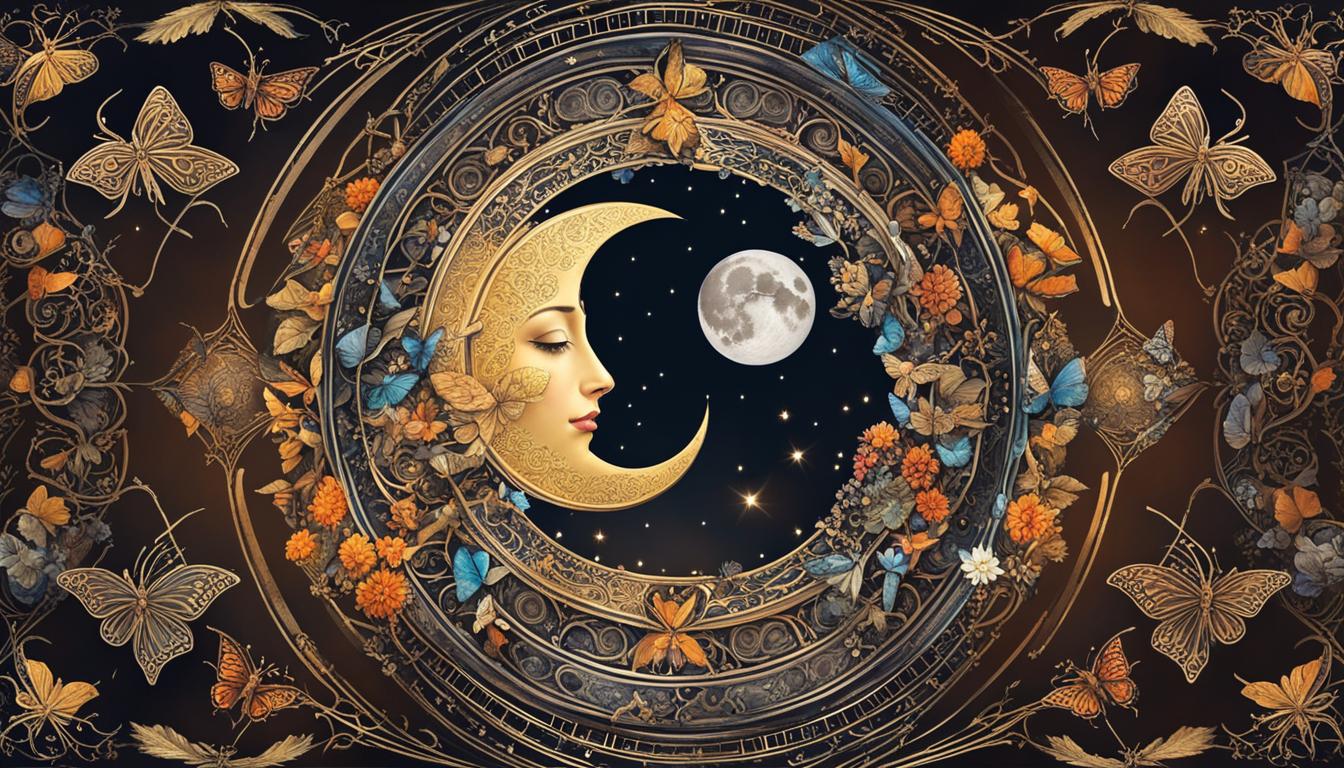
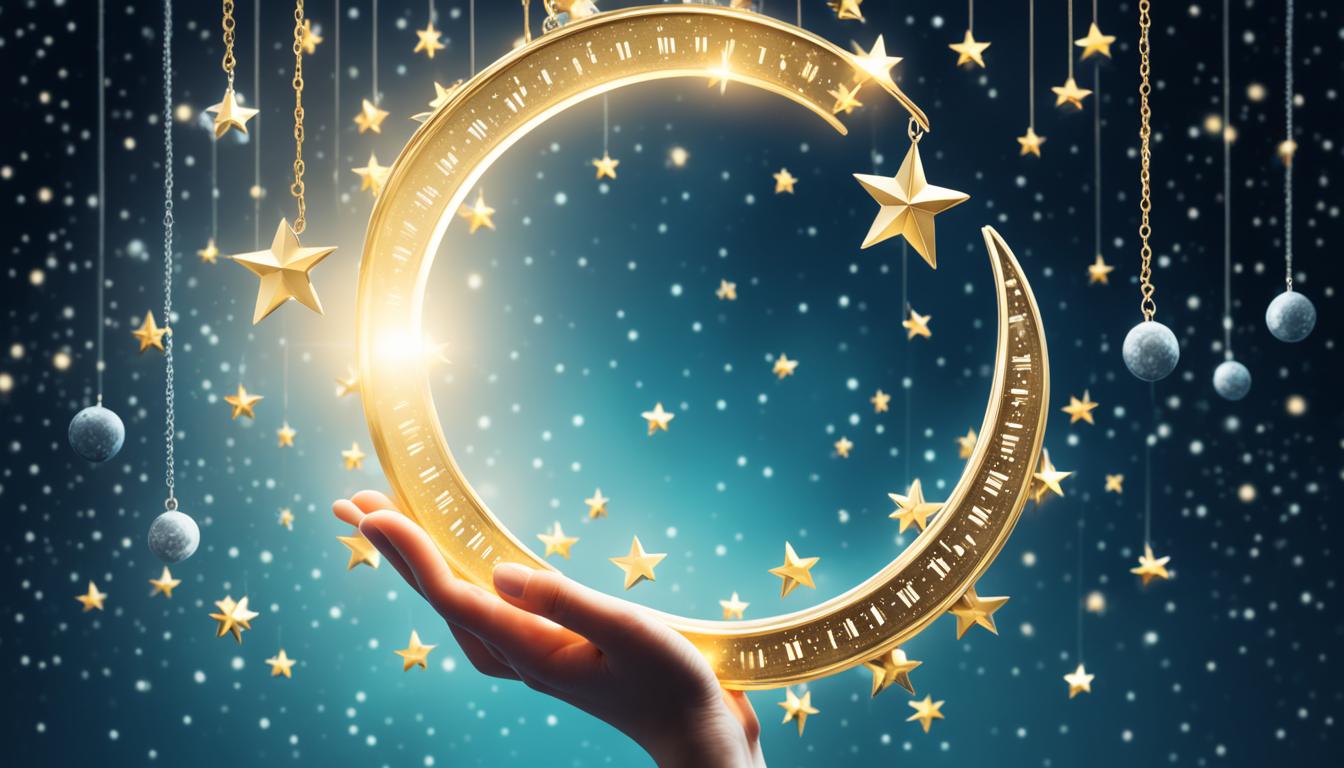



[…] journal can be incredibly helpful. Tracking energy levels throughout the different phases of the moon allows us to recognize…
[…] Reading is a new platform that offers personalized insights based on the lunar cycle1. It’s different from generic horoscopes,…
[…] As we set intentions aligned with the New Moon energy, we open ourselves to the power of manifestation. By…
[…] intentions during the new moon is a powerful practice that allows me to declare my goals and aspirations. It…
[…] These readings provide a convenient and accessible way to connect with the energies of the new moon and gain…